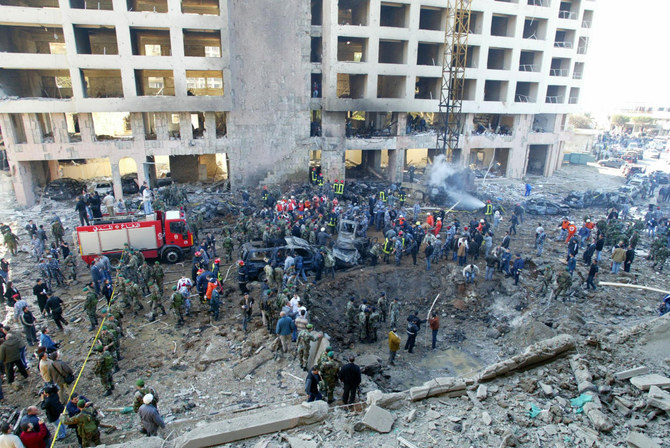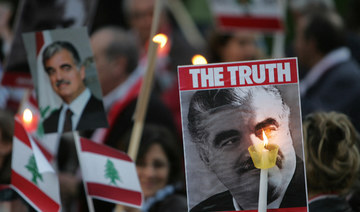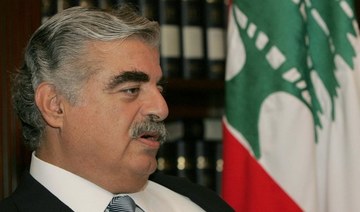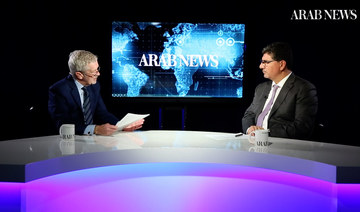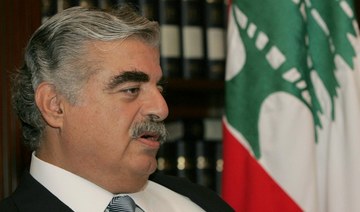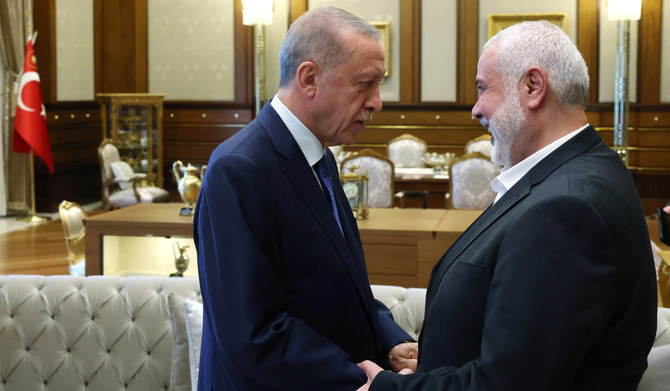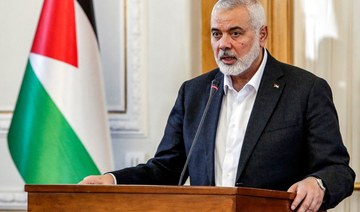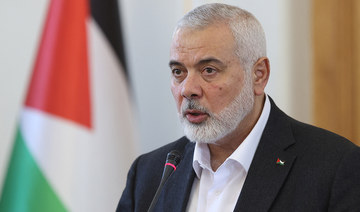LONDON: The clock is ticking ever closer to a moment of reckoning. The Special Tribunal for Lebanon (STL), which was established to investigate and prosecute those responsible for the 2005 assassination of former prime minister Rafik Hariri, has run out of money and is due to permanently close at the end of July.
In the midst of an unprecedented national economic crisis, authorities in Lebanon said they are no longer able to cover their 49 percent share of the tribunal’s $40 million-a-year operating costs. The remaining 51 percent is provided by 28 donors, including the US government and several European states.
The STL announced its verdict almost a year ago. Despite repeated government appeals for financial assistance to help the STL fully fulfill its mandate, and impassioned defense of its achievements so far by experts in international criminal justice, donor nations appear content to allow it to adjourn for good.
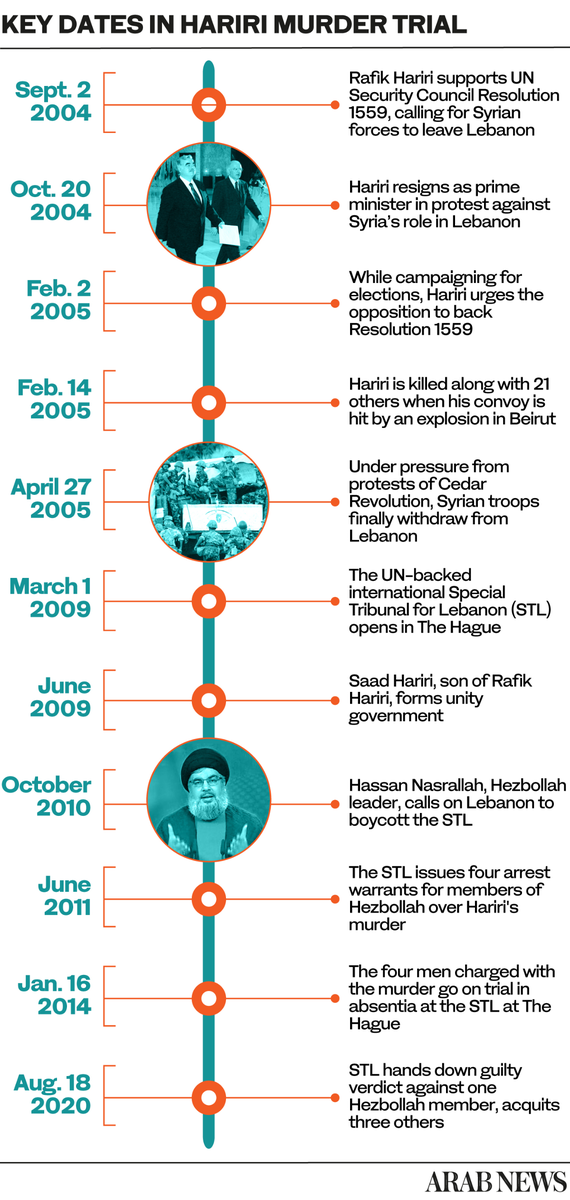
At the time of its launch there was widespread support for the tribunal, as Lebanon reeled from one of its worst atrocities since the civil war. On Valentine’s Day 2005, a massive car bomb exploded outside St. Georges Hotel in Beirut. It killed Hariri and 21 other people, and left 269 wounded.
The international community responded by issuing a number of UN Security Council resolutions and setting up an investigative commission to assist the Lebanese authorities in investigating the murder and other political crimes.
Four years after the assassination, UN Security Council Resolution 1757 established the STL, based in Leidschendam in the Netherlands, kick-starting the task of seeking the truth and obtaining justice for the victims.
The tribunal issued its judgment on Aug. 18 last year. It found Hezbollah member Salim Jamil Ayyash guilty of launching the attack, but acquitted three co-defendants.
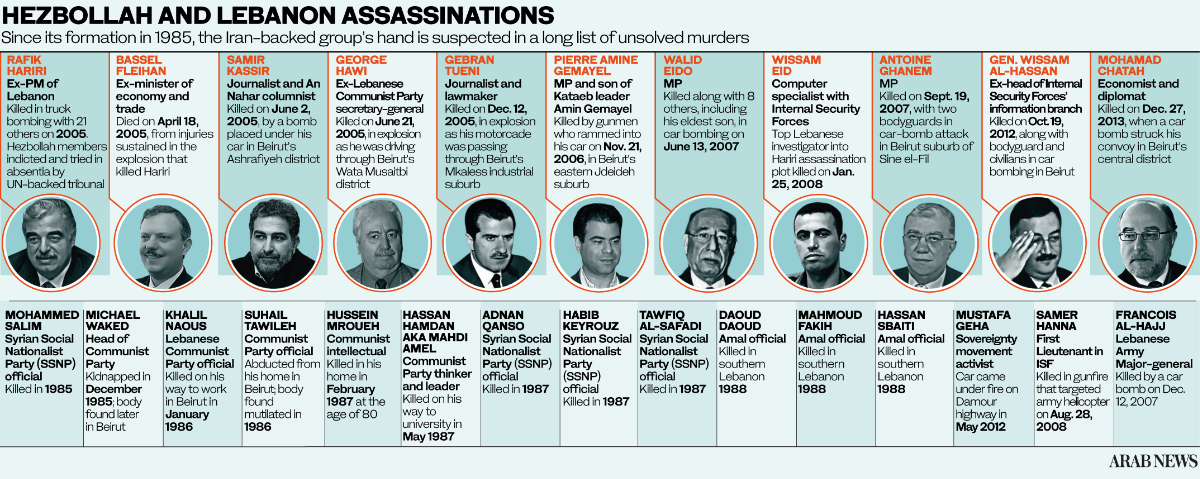
After long delays, attacks on investigators, intimidation of witnesses, and routine trouncing by the media, the STL’s verdict was greeted with an almighty shrug. Coming as it did close on the heels of the devastating August 4 Beirut port explosion, the decision was seen by many as proof that the process had failed because it “convicted only one person.”
Defenders of the work of the STL acknowledge that the court and its verdict have their limits, but say it nonetheless represents a successful multilateral effort to reinforce a rules-based international order. They also argue its mission is incomplete and part of a wider learning curve for institutions of international criminal justice.
“No international criminal tribunal has ever halted its work in this way due to a funding shortfall and this should never have happened with the Special Tribunal for Lebanon because it should have been allowed to complete its mandate,” Olga Kavran, head of outreach and legacy at the STL from 2010 until last year, said during a webinar hosted by the Arab News Research and Studies unit on Monday.
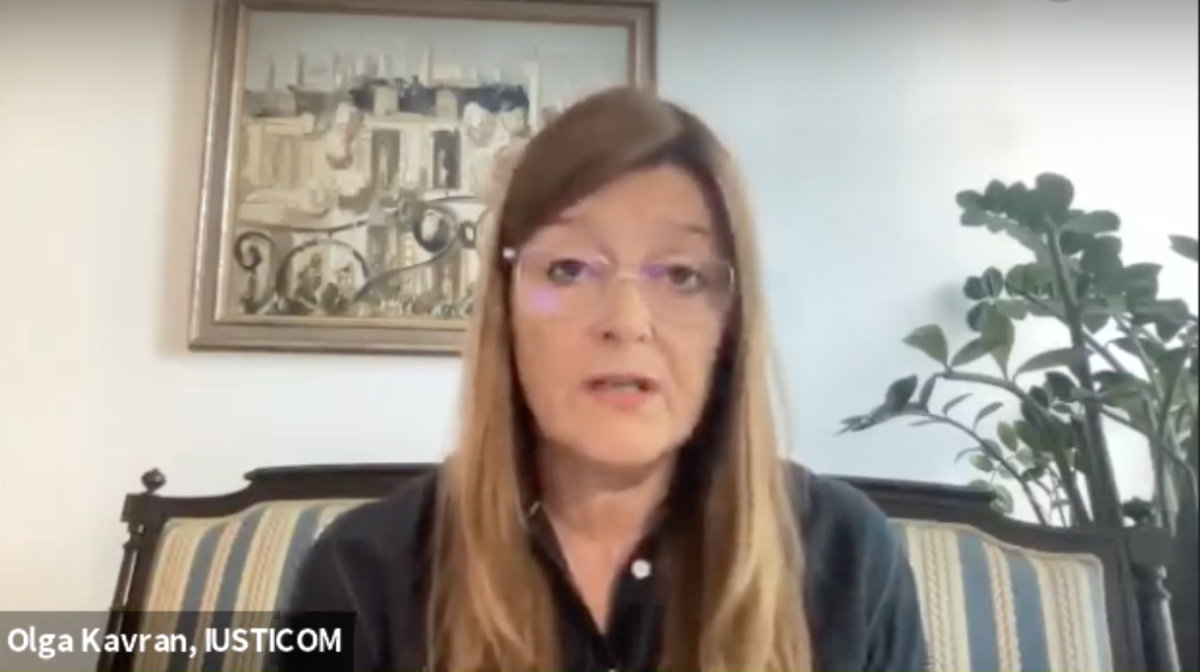
Olga Kavran
“This is not to say that there should not have been a thorough examination of the way that the tribunal has been managed, of the way that the proceedings of the tribunal have been conducted because, after all, international criminal justice as a project is one (that is) in development, and all other international criminal tribunals have been examined and scrutinized so that the best practices can be learned, so that the international criminal justice project can advance.”
- Read the full report on Arab News Research & Studies by clicking here
- Watch the Briefing Room webinar "The Special Tribunal for Lebanon: Truth, Justice or Accountability?" by clicking here
Kavran, founding director of IUSTICOM, the first non-governmental organization focused on communicating justice, is the co-author of a report titled “The Special Tribunal for Lebanon: Truth, Justice or Accountability?” that was recently published by the Lebanese American University’s (LAU) New York Academic Center in collaboration with the Arab News Research and Studies Unit.
It offers a passionate defense of the STL and examines some of the possible reasons for the poor reception to it.
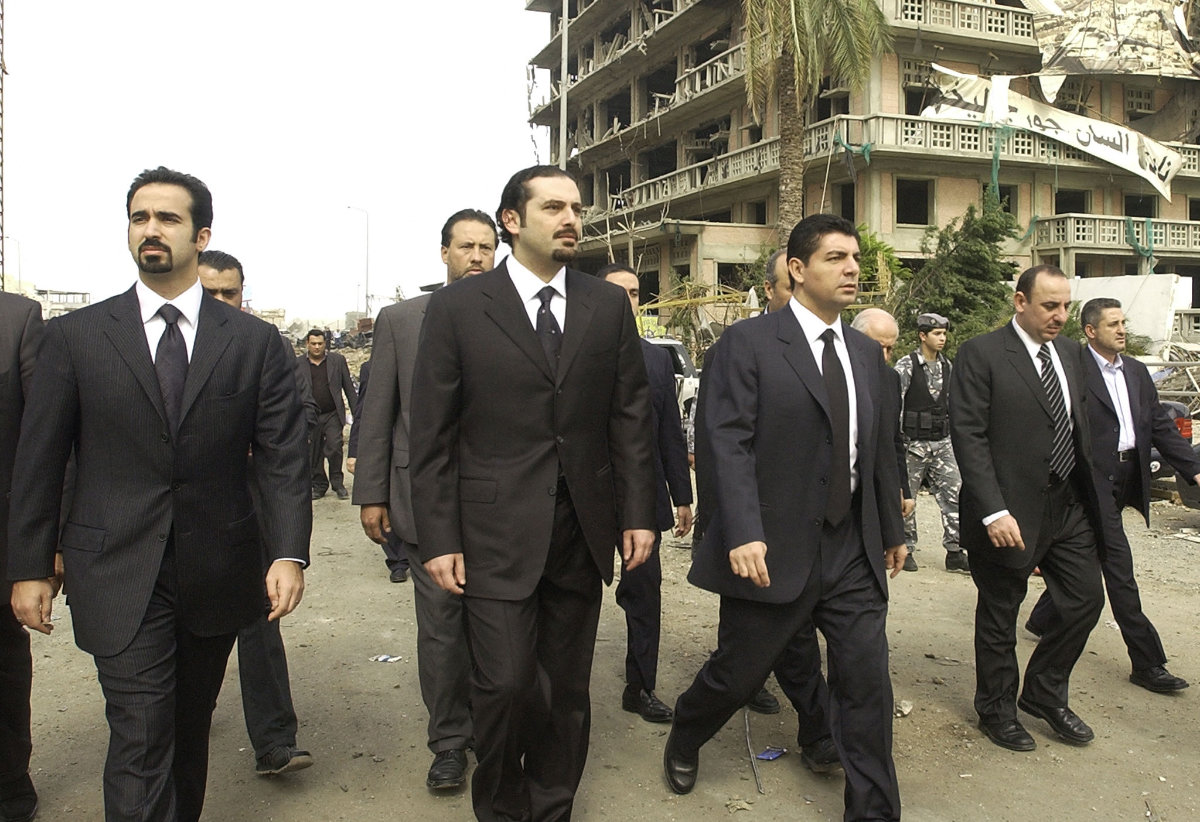
In this Feb. 19, 2005, photo, three of the sons of slain Lebanese former PM Rafiq Hariri, (from L to R) Ayman, Saadeddin and Bahaa visit the site of the massive explosion in which their father was killed on Feb. 14. (AFP file)
The STL was the first international tribunal with jurisdiction over terrorism and the first to conduct trials in the absence of the accused. For the first time in the region, it introduced the principle of accountability for political crimes.
Crucially, at a local level in Lebanon the STL did succeed in delivering a significant part of “the truth” that people wanted after the assassination of Hariri.
“Disappointment with the judgment is based on a combination of unrealistic expectations, a lack of understanding of the tribunal’s rigorous procedures, and legitimate concerns about the narrowness of its mandate and the length of time it took to reach its judgment,” according to the report.
“In view of the scale of suffering during the Lebanese Civil War, for which no one has ever been held accountable, and the dozens of political assassinations throughout Lebanon’s history, it was indeed difficult to argue that the assassination of one man warranted such an expensive and complex legal instrument.
“This added to the unrealistic expectations that the tribunal would address much broader issues of states and groups which regularly interfere with and undermine the authority of the Lebanese nation.”
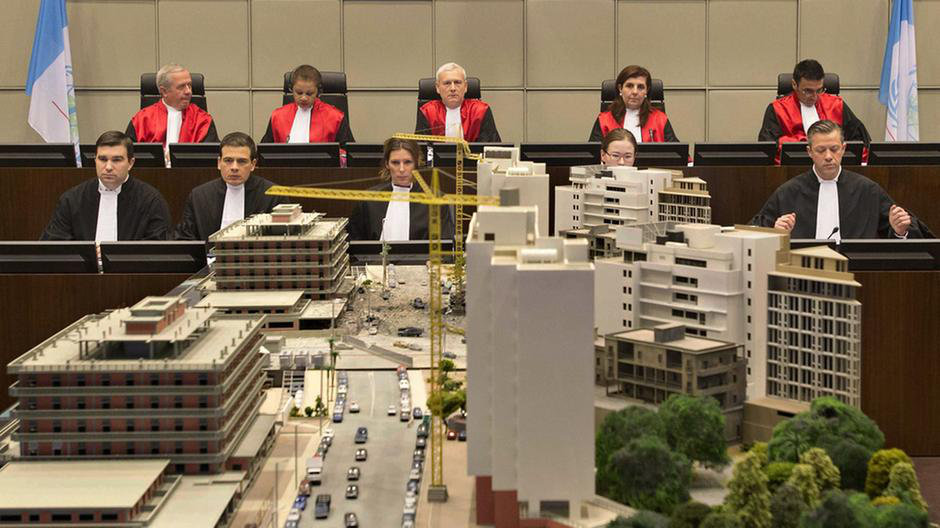
Members of the UN's Special Tribunal for Lebanon participate in a hearing on the Rafik assassination. (AFP file photo)
Among the critics of the tribunal is David Schenker, a former US assistant secretary of state for near eastern affairs and the Taube Senior Fellow at The Washington Institute. In an essay published in Foreign Policy magazine on July 19, he concluded that the STL “has not led to a single arrest, so Washington should let it expire and help the Lebanese people in better ways.”
He wrote: “The truth about who killed Hariri has been firmly established by the court but in Lebanon, where the verdict needs to be implemented, the wheels of justice do not grind. As with so many political murders there, no one has been held accountable for his death.”
- Read the full report on Arab News Research & Studies by clicking here
- Watch the Briefing Room webinar "The Special Tribunal for Lebanon: Truth, Justice or Accountability?" by clicking here
Ayyash, the convicted plotter, is thought still to be living in the country, under the protection of Hezbollah, but the Lebanese authorities have made scant efforts to arrest him.
“Proponents of the tribunal argue that, to this day, it continues to serve this purpose by exposing Hezbollah’s crimes and thus damaging its reputation,” Schenker said. “Alas, there is little evidence to suggest that Hezbollah’s supporters are repulsed by this or any other murder linked to the organization.
“Instead, 16 years after Hariri’s death, the tribunal, which has cost various countries’ taxpayers nearly $800 million, has become a distraction amid Lebanon’s self-inflicted state failure and Hezbollah’s increasing dominance of the state.”
INNUMBERS
51% of tribunal’s funding provided by international donors.
49% of funding provided by Lebanese government.
He therefore sees no use in prolonging the life of the court any further.
“Even if the Lebanese government and the United Nations try to salvage the court, the Biden administration should let the tribunal expire,” Schenker said. “The court cannot implement its verdict in its most important case, and with the economic situation in Lebanon rapidly deteriorating, continuing to pay for the tribunal would constitute an appalling misallocation of resources.”
Whatever its outcome, the tribunal has added significantly to the historical record. The judgment’s 2,641 pages, and the evidence laid out in them, are especially important for Lebanon, where a culture of “moving on” and a deeply ingrained concept of leaving the past behind in the name of “stability” have long prevailed.
During Monday’s webinar, report co-author Nadim Shehadi, executive director of the LAU Headquarters and Academic Center in New York and an associate fellow of the international affairs think tank Chatham House in London, said: “In 2005, the Lebanese asked for the truth.
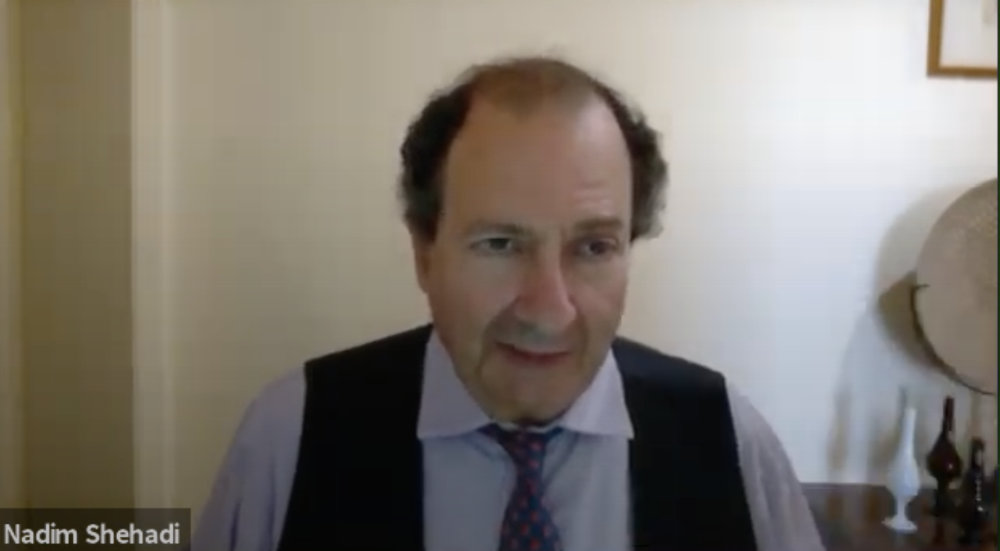
Nadim Shehadi
“But they asked for an international tribunal not because it would just deliver the truth. They wanted an international tribunal because they also wanted the international community to know the truth, because they felt that in the past 10-15 years they had been abandoned. If the international community knew the truth then the protection would be restored.
“It (the tribunal) has been ignored internally — not just because people are bored, not because it took a long time, not because it’s partial — (with) lots of criticisms of the process. I think it is because they cannot handle the truth.”
- Read the full report on Arab News Research & Studies by clicking here
- Watch the Briefing Room webinar "The Special Tribunal for Lebanon: Truth, Justice or Accountability?" by clicking here
Above all, the report argues that a failure to address the findings of the Hariri case, while also halting the case dealing with three terrorist attacks on Lebanese politicians Marwan Hamade, George Hawi and Elias El-Murr on the eve of the tribunal, would send the message that impunity prevails in the Middle East.
Nidal Jurdi, a Canadian-Lebanese lawyer who is the acting representative of the UN’s Office of the High Commissioner for Human Rights in Tunisia and the lead victim representative at the STL, also took part in the webinar.
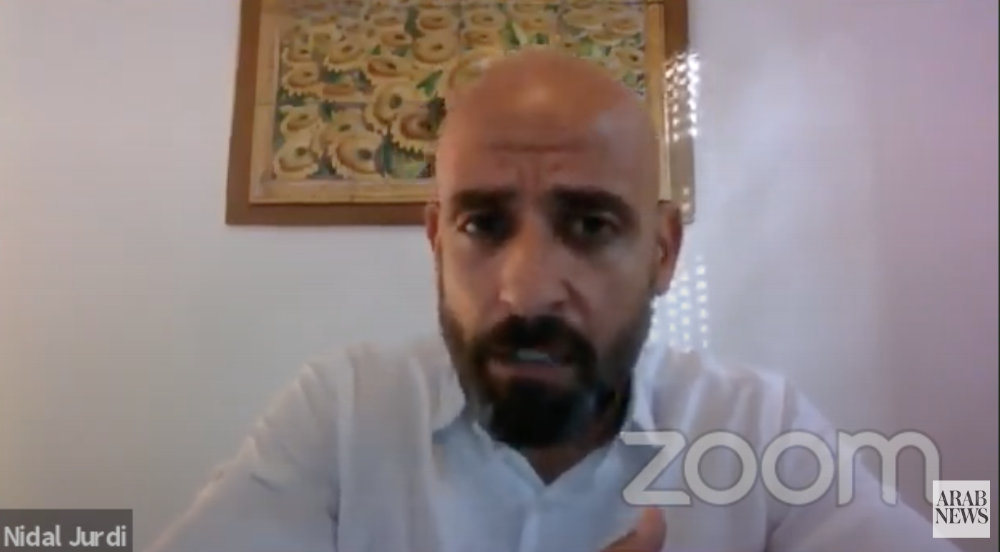
Nidal Jurdi
He argued that much of the disappointment with the tribunal stems from the decision to convict only a single individual, rather than pursue the commanders who ordered the attack or others who participated in the plot.
The inability to enforce the verdict made the tribunal appear wasteful, he added. Given this, combined with the slow pace of the investigation and a perceived misuse of resources, he said he is not surprised the STL received such a negative reception.
“The STL was needed, and the legacy and example is needed — but a reformed one that can really see the situation how it was in Lebanon in such a situation of organized crime,” Jurdi said.
Indeed, he believes that if the court is allowed to close now, it will be a more cruel blow to the victims and their families than if it had not been established in the first place.
“The victims, now, they are devastated,” he said. “If you ask me, it would have been better not to indict than to indict and then retreat. How does it look?
“Do you think anyone would believe any more in international justice in the Middle East or Lebanon? It would become a joke.”







